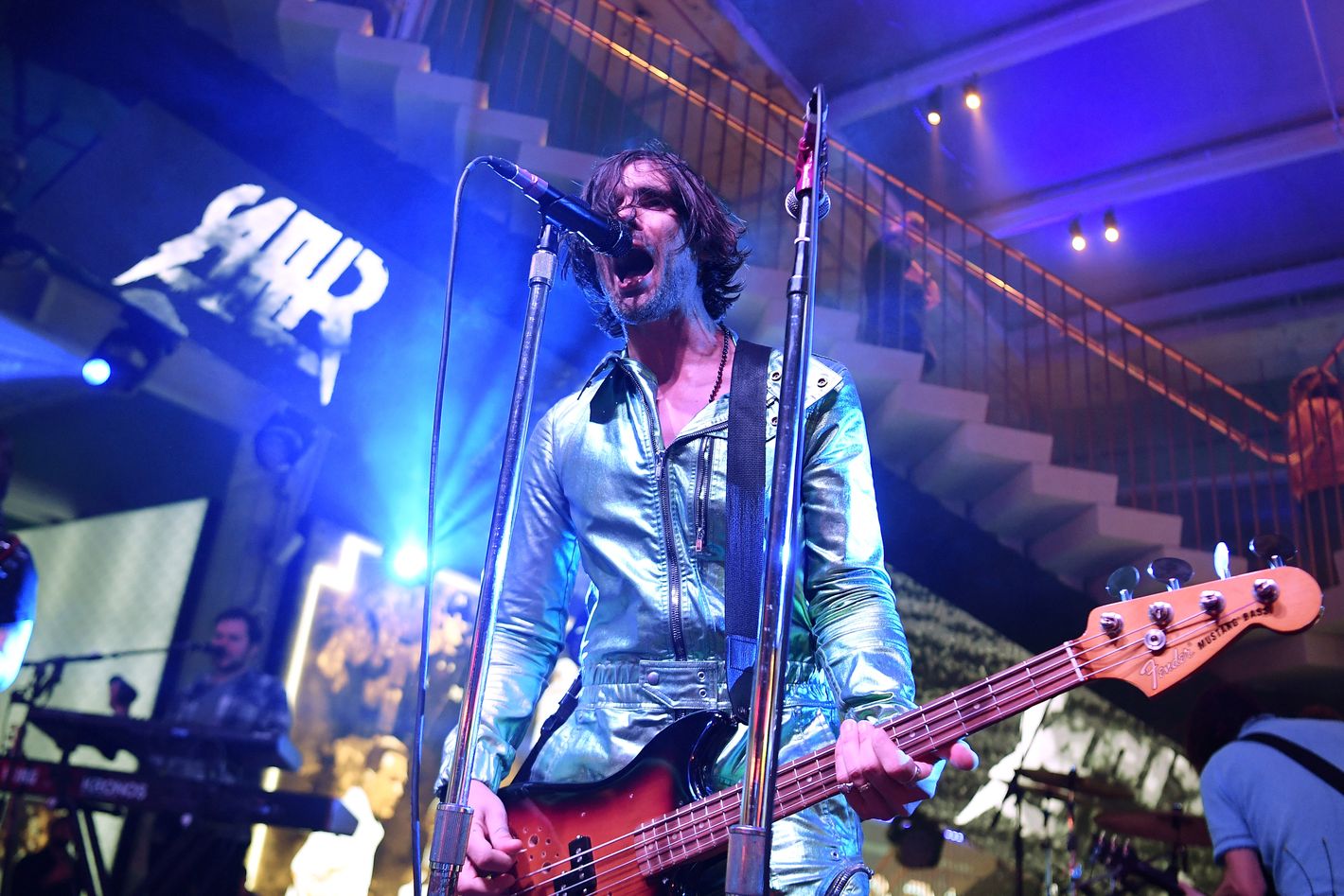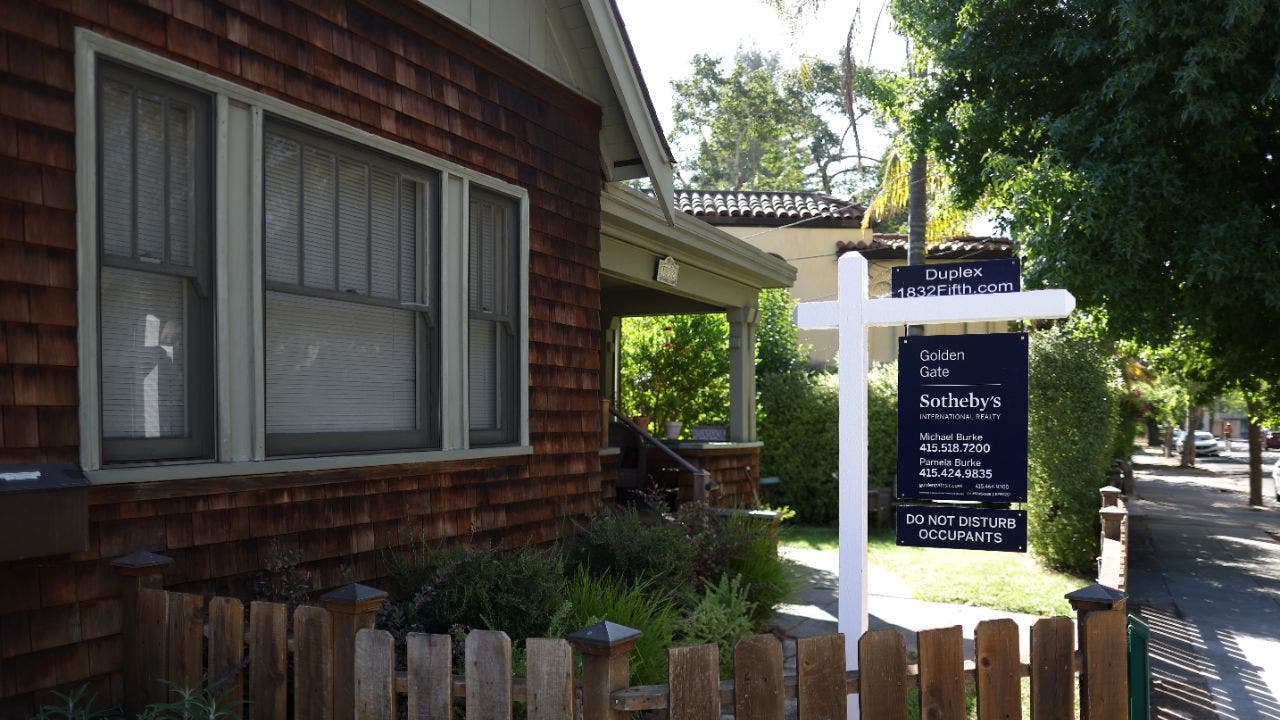The All-american Rejects Think House Parties Can Fix The Broken Concert Industry

Photo: Marcus Ingram/Getty Images
It’s time to party like we’re extras in She’s the Man. That’s what the All-American Rejects want us to do, anyway, with their current tour giving the middle finger to big venues that charge a lawsuit-inducing amount of ticket fees. The band is embarking on what they call the House Party Tour, crowdsourcing stops directly from fans and playing in backyards, bowling alleys, and any other spaces that will have them. Front man Tyson Ritter, the voice behind aughts-era bangers such as “Dirty Little Secret” and “Gives You Hell,” isn’t doing this for the money. Just look at the videos from the gigs and you’ll understand why. “We took $50,000 out of our own pockets, booked a bus, put the crew salary on, and started this wild sort of ride,” he says. “I recently read something about people financing festival tickets, the complete inaccessibility of the concert experience in 2025, and how it’s juxtaposed against these wild and weird economic times. It blows my mind that our shows can still work.”
While the All-American Rejects have remained a consistent touring band, the house-party pop-ups — which were coordinated at turbospeed at the start of May — coincide with the release of their first new song in over a decade, “Sandbox.” The band will be opening for the Jonas Brothers at their stadium tour later this year, but Ritter insists they don’t plan to move along from these shows anytime soon. “This is going to be a feather we fly in our cap, and we’re going to Yankee Doodle as far as we can go,” he says. “I felt like I was watching an echo of a yesterday that got me into doing this.”
There’s this frenetic energy and joy I see from these house-party videos that has become a rarer and rarer concertgoing experience. How did you all decide to give this tour a try?
This has been reactive — since a show we played at the University of Southern California for a local college radio station at the start of the month. We wanted to do something that was as far away from the Los Angeles industry crowd as possible. We did a show the night before at this place called No Vacancy. It felt bad. It’s the reason why artists often hate playing in Los Angeles, because it’s such an industry-driven town — the guest lists on those things end up turning into a bunch of suits. So we played this pop-up at USC and tapped into a crowd that wanted to come to a free show. The night was so cinematic.
Like a full-circle moment?
The spirit of where we started was we were four kids that weren’t cool and got to play at a high-school party. And that night at USC, we felt cool. Kind of like when kids would pass a tip jar around for us to be able to pay for gas to get there and back. So after that night, we all put our heads together to see what would be possible. My wife’s getting ready to bring our second child into the world, and she’s due in a week and a half. I told my manager, “What if we do as many as we can in this week-and-a-half space? Let’s do it the same way we did when we started out. Let’s reach out to college radio stations and local businesses. Let’s ask for a $5 donation at the door.” It was that simple.
The other night we popped up in a bowling alley because the house party got rained out and we needed to be indoors. We called this local bowling alley in Minneapolis on Friday night. The owner was like, “Nobody’s here, yeah, you can do it.” Doing these shows, there’s a kind of an unspoken risk of liability, especially when it started stirring up on social media. But he was like, “This could be something great for my business.” At the end of the night he told us with tears in his eyes, “You made our summer and you saved our bowling alley.” This is the energy that’s gone into the whole thing. It’s all positive. Whatever happened at USC was this pure, driven spirit of why we started.
Have certain places you called suspected a catfishing situation?
A lot of kids didn’t go to the first couple of shows because they thought it was a cover band or thought it was just a spoof. Which I love. It endears me even more to this enterprise that we’re starting here.
These giant artists — I’m not going to say her name — aren’t really selling out their shows anymore, and they pay for these arenas to make it look like they did.
At one of these recent shows, you implored the crowd to “support a rock-and-roll band that gives a shit about the common man.” Can you elaborate on this and explain where you think other bands are lacking in this regard?
That’s not a slight at any artist, and it’s not a slight at any system, because we’re all beholden to this complete monopoly of a world in America. Capitalism is ringing at its loudest right now. For me, it was that we could find an opening and an opportunity as four guys from Oklahoma who didn’t come from much. I was raised in a trailer house. My first concert was sitting on my porch listening to a band that was playing at an outdoor pavilion because I couldn’t afford tickets. I couldn’t afford CDs. I found my music taste in the back seats of friends whose parents had money and could buy them. When we made up our band name, we almost came to regret it. Why did we call ourselves the rejects? But now it’s such a badge of courage. When we came onto the scene, pop-punk was a thing, and then emo came around and we got lumped into those categories. But we’re really just a pop-rock band from Oklahoma who came from a working-class backdrop. I think that’s the reason why we’re still together.
So yeah, that speech the other night was me realizing all of those things in real time. It was like, This is the reason people are showing up. It’s the have-nots and have-littles in the middle-of-nowhere America who keep the lights on for our country. They’re often drive-through states for many of these big tours. Who’s playing Ames, Iowa? Who’s playing Green Bay, Wisconsin? Unless it’s a big arena with the big old sponsor. You’re seeing it now where these giant artists — I’m not going to say her name — aren’t really selling out their shows anymore, and they pay for these arenas to make it look like they did. The first 25 percent of the arena gets sold from people buying $300 tickets, and they don’t even know that the local promoter is getting hundreds of free tickets to fill the rest of the venue. I can’t believe that’s not something people don’t put a class-action suit against, because it seems to be robbery. If I sold you a sandwich for $100 so I could give away my last sandwich to a guy on the street, then why did I pay $100 for that sandwich, man? Just give me a $5 sandwich and let’s all eat together.
So you were very strategic in the cities you chose for these shows.
I live in Tulsa, Oklahoma, and there were a lot more venues for live music when I started playing in the city. I played at a record store that was literally just a metal building. Even touring in the van back in the day, almost every venue we played at, a local kid promoter got to promote it. That language for gestating and creating a space for local live music is dead now because every young artist thinks they have to have a TikTok video. Rock and roll was not born on TikTok. Music shouldn’t have to be born in a social-media environment. It should be fostered in hometowns with local followings. Every kid after a show will come up and ask, “How do you do it?” They have no idea what to do next. I’ll say, “Play a coffee shop, play a record store, and play anywhere you can get not only your friends to support you, but people who might just want to come see a free live show.” Live music is a fellowship. We’re so divisive right now. It’s so fucking toxic out there. That’s why I think rock and roll is going to come back in a big way. We’re just trying to pull up any bootstraps to help the cause.
Last year Liam Gallagher defended his choice in Oasis’s opening act, Richard Ashcroft, after a sizable group of fans complained that they should have instead elevated a younger artist. Liam said, “New bands have it easy today; it’s the middle-aged bands I feel bad for.” As a band now firmly rooted in middle age, do you understand what he meant by this on a personal level?
I get that. But it’s hard to agree when he cites Richard Ashcroft from the Verve as an example of a guy who’s having a hard time. He stood in the brightest sun you can possibly shine in as an artist. There are a lot of bands we came up with in our genre and scene that are great bands, who are in our age bracket, and they definitely don’t get to open up for Oasis. Maybe he was referring to the relevance of it all — giving somebody a relevant spotlight. I know Cage the Elephant is going out with them for the American leg of the tour. That’s a band who’s older than us, and they’re just now straddling a prime. That’s what’s exciting to me about being a little bit older and wiser. You know more about yourself to put it into art that’s truthful.
I really appreciate when artists know they can’t find their truth and split up. That was honestly a big thing for me that ham-stringed our attempt to even try this again: Can we find music to evolve this band? I sat in front of a “record” button since I was 15 years old, and people kind of forget artists are allowed to experiment and grow. It’s really nice to be putting out new music around this spectacle of a tour that we feel so proud to be showcasing. We still have something to say.
Have you discussed with your peers the difficulty of maintaining success as you age?
Great actors get so much better with age. It’s not because they’re afraid anymore. They’re actually at ease. I feel like we had 13 years off from our last real offering. There was a lot of time to develop. When we were young and full of piss and vinegar, it was all about anticipation and expectation. The giant major-label system pressing down from the ivory tower made us feel like if we didn’t perform, then it was all going to be over. Right now, we’re self-funded in a world that’s forcibly injecting every popular song into the masses. We’re able to control our narrative as a band. That’s what I’m trying to inspire younger artists to do right now. Quit trying to shoot for a viral TikTok video, which has nothing to do with music.
What’s the narrative you’re now trying to build?
We wanted to find a culture for this band that was based on the love of the music. Finding it through these shows has not only reinvigorated our love for this whole attempt; it makes me so excited about how it’ll be received. That crowd showed up, and it felt like this wild aughts rom-com culture in front of us. We’re fired up on new music more than we’ve ever been, because now there’s actually some resonance, soul, and an energy that’s very feral from being kept in a burlap sack for over a decade. The cat’s out of the bag, baby. And the cat’s name is Pandora.
Related


